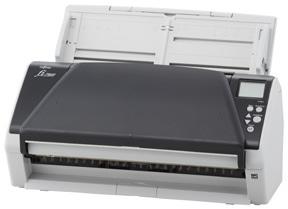

Inspiring success in the workplace supplies industry





Inspiring success in the workplace supplies industry


As sustainability takes centre stage, we delve into four critical areas to uncover insights on driving progress




Printers from Brother
PC Pro’s Best Printer Brand for 11 consecutive years – trusted, valued, loved.



































“At your side” for high-quality, reliable, cost-e ective printing.



















































It’s hard to believe that a whole year has passed since our last Green and Eco issue, but here we are again with what has quickly become my favourite issue to curate - one dedicated to all things sustainable and environmentally conscious.
Navigating the eco journey isn’t always straightforward. At times it can be hard to see the wood for the trees - or feel like we’re trudging the same old paths. But real progress often comes from taking the road less travelled - exploring unconventional ideas, challenging the norm and embracing fresh approaches.
The workplace supplies industry continues to do just that, demonstrating that meaningful change is driven by action, innovation and a readiness to seize opportunities.
In this issue, we’ve put a fresh spin on our traditional Big Eco Ask, delving deeper into specific questions and bringing you insights from industry experts. Our business success section highlights emerging trends to help dealers tap into greener product categories, and our special focus on eco-friendly materials for workspaces explores everything from the quirky and unique to the practical and functional. We also caught up with Quills to discuss their successes and what’s on the horizon for them in the year ahead.
Wherever you are on your sustainability journey, I hope this year’s eco issue inspires you. We all have a part to play in building a better future. Because as famed explorer Robert Swan once said: “The greatest threat to our planet is the belief that someone else will save it”
As always, we’d love to hear all about your success and to be inspired by stories of resilience and agility. Please do share all your news via LinkedIn and X @dealersupport.
Holly Tinsley Editor



06 THE MONTH THAT WAS
The latest news from the workplace supplies industry
08 NEWS REPORT:
STATIONERY WEEK SET TO SOAR
Preparations are in place for another highly successful stationery week
09 SPOTLIGHT ON: GREENWASHING
Is your business prepared for upcoming crackdowns on greenwashing?
10 DID ANYONE PACK THE OARS?
Steve Carter reflects on the last half-decade and how the industry has evolved
12 CLICK IT: BEST OF THE WEB
Bringing you the best of our recent digital articles from the Dealer Support website
16 SPECIAL FEATURE:
2025 GREEN AND ECO DEEP DIVE
Industry experts offer insights into four areas of sustainable growth for dealer businesses
● Collective Movement: How can the industry move forward together?
● Emerging Markets: What should dealers be capitalising on?
● Technology: What innovations are driving sustainable practices?
● Training and Development: Where should dealers be building their knowledge?
22 DRIVING GROWTH THROUGH SUSTAINABILITY
Diversification into new product categories offers a unique opportunity for growth
26 WHEN THE GOING GETS TOUGH
The tough keep marketing! Helen Colton explains the importance of consistent efforts
28 THE RISE AND RISE OF QUILLS
CEO Andy Efstathiou and the Quills team talk growth, acquisitions and success
32 NAVIGATING SUSTAINABILITY DATA
Are the three E’s a threat to the quality of your environmental data?
34 MYCELIUM TO BAMBOO: MATERIAL MATTERS
Bamboo, newspaper, mycelium and ocean plastics – embrace the unconventional
38 FINAL WORD
Bin the bottle and offer solutions to ensure tap is top for your customers

Integra Business Solutions continues to expand its Catalyst programme, an initiative designed to help independent dealers win, manage and grow key accounts. The programme is focused on enhancing partners’ profitability and market share, with the OASIS ERP platform playing a central role. By working with a single software provider, Integra has been able to implement best business practices, streamline operations, and deliver a competitive edge.
Catalyst has seen significant success, supporting dealers across the UK with sales now more than £30 million. Partners on the programme have access to a range of solutions from website development, marketing and content management. The content management team play a crucial role in optimising data to drive growth opportunities, particularly by expanding into new product categories and industry sectors.
Fellowes Europe is proud to announce that it has successfully renewed its EcoVadis Bronze Medal for the second consecutive year, reaffirming the company’s commitment to Corporate Social Responsibility (CSR) and sustainable business practices.
This year, Fellowes Europe improved its EcoVadis score by 9 points, rising from 58 to 67. The company also enhanced its position within the industry, moving from the top 30% to the top 16%. Notably, the Sustainable Procurement score saw a major leap from 40 to 70 points, reflecting significant progress in responsible sourcing and supply chain management.
EcoVadis, the globally recognised sustainability ratings platform, evaluates companies across key sustainability criteria, including environmental impact, labour and human rights, ethical business conduct and sustainable procurement. The significant improvement in Fellowes’ score reflects the company’s ongoing efforts to enhance responsible business practices and drive meaningful change.
Business professionals are invited to a refreshing networking event that supports the BOSS Business Supplies Charity’s 100th anniversary. The BOSS Midlands Committee’s Sponsored Net Walking Event will be held on Friday, April 11th, at 11 AM, set against the picturesque backdrop of The Wrekin in Shropshire.
James McKeever, chair of the BOSS Midlands committee said: “We’re thrilled to bring this event to The BOSS Community and a wider audience! It’s a fantastic opportunity to connect with like-minded individuals, support an incredible charity, and build relationships – all while embracing the great outdoors.”
The event is open to all business professionals, teams, and individuals and is dog friendly. Businesses interested in showcasing their brand can participate by having a committee member carry their logo during the walk. For further details, please contact Sue Ford at brandamplify1@gmail. com or visit the event’s JustGiving page: www.justgiving.com/page/bossmidlandsteam.

As reported by BOSS, Hamelin Brands has once again secured the BPIF Health & Safety Seal of Excellence, reaffirming its strong commitment to workplace safety. The BOSS Federation member underwent a rigorous audit led by BOSS/BPIF Health and Safety consultant Mila Soukup, reaffirming its dedication to maintaining the highest health and safety standards.
The BPIF Health and Safety Seal of Excellence programme provides businesses with a structured framework to assess and enhance their safety management systems. Companies must undergo a comprehensive audit, where key areas of health and safety performance are evaluated. Immediate feedback is provided, along with recommendations for continuous improvement. To maintain the prestigious Seal of Excellence, businesses must either uphold or improve their score in audits conducted every two years.

Take note! Stationery Week is just around the corner, bringing a vibrant showcase of creative products into the spotlight. Be sure to pencil it in your diary!
National Stationery Week 2025 (NSW) is shaping up to be a major celebration of all things stationery, running from 12-18 May. With a growing list of top sponsors, this year’s event promises to be bigger and better than ever.
This year’s sponsors include 3M, The Art File, Maped Helix, Pentel, Snopake, Staedtler and Zebra Pen. They have recently been joined by Exaclair, Mitsubishi Pencil Company (Posca), ecoeco Stationery, Pilot Pen and Manuscript Brands. Their support ensures an exciting and engaging experience for stationery lovers across the UK.
NSW coordinator Sarah Laker, owner
of Stationery Supplies in Marple and Wilmslow, is thrilled with the growing enthusiasm. “As we continue to build excitement for National Stationery Week, it’s fantastic to see even more brands come on board as sponsors. Their support plays a key role in helping us celebrate stationery and creativity across the UK.”
Leading up to NSW, a seven-week countdown will feature fun activities, followed by a week of daily themed events. One highlight is the popular ‘shelfie’ competition, where fans can showcase their stationery collections.
The event coincides with the London Stationery Show, taking place on 13-14 May at the Business Design Centre in Islington. This trade show brings together stationery enthusiasts, buyers, and industry professionals. Registration
It’s fantastic to see even more brands come on board as sponsors
is now open, and exhibitors can contact Chantelle White at chantellew@maxpublishing.co.uk.
Retailers and companies keen to participate in NSW 2025 can reach out to Sarah Laker at sarah@ nationalstationeryweek.com. With new sponsors and exciting plans underway, NSW 2025 is set to be a must for all stationery fans.

As small business owners, it’s crucial to ensure that your customers receive accurate information about the sustainability credentials of your products and services
Starting in spring 2025, the Competition and Markets Authority (CMA) will have the authority to impose fines on businesses making false or misleading environmental claims.
Since dealers often rely on third-party information to communicate sustainability details, understanding these upcoming changes is vital. It’s more important than ever to ensure that the environmental claims made about your products and services are truthful, substantiated and compliant with the law to avoid potential fines and reputational risks.
To ensure compliance with the new regulations, it’s essential to use clear and transparent terminology when communicating environmental claims. Dealers should invest in training their sales and marketing teams to understand the distinction between vague, unsupported claims and datadriven, verifiable information.
Furthermore, dealers must ensure that any information provided by third parties - such as suppliers or manufacturers -
meets the same high standards of clarity and accuracy. This means verifying that the sustainability claims from third-party sources are backed by solid evidence and align with regulatory requirements.
If adjustments to your business’s environmental targets become necessary, transparency is crucial - both in how you communicate with customers and in your overall strategy. However, transparency should go beyond just changes to targets. It must apply to every aspect of your environmental claims.
It’s essential that any information you share accurately reflects your true sustainability efforts
The Digital Markets, Competition and Consumers (DMCC) Act will allow the CMA to fine companies up to 10% of their global turnover or £300,000whichever is higherfor breaking consumer law.
Whether it’s about the sourcing of materials, energy consumption, or the recyclability of packaging, inconsistent or misleading claims can quickly damage trust. Therefore, it’s essential that any information you share - whether through marketing, advertising, or packaging - accurately reflects your true sustainability efforts.
With regulators taking a stronger stance on greenwashing, it’s crucial for businesses to review their marketing materials and contracts to ensure any environmental claims are fully substantiated. By staying ahead of these new regulations and being transparent in your environmental claims, you can avoid fines and foster greater trust with your customers.



Can you remember what you were doing at this time five years ago? STEVE CARTER can - and it’s made him appreciate the importance of pulling together as an industry
Five years ago, I was getting very concerned about what covid might develop into, where it might lead me in my personal life and what might happen in my working life. I was also getting pretty concerned about what was happening with our, then, main wholesaling partner.
Yes, that was five years ago! Hardly seems possible, does it?
Let’s think for a moment about a few things that have happened and the resulting changes during that time - lockdowns, furlough, hybrid and flexible working. If I had a pound for every time I have heard the words ‘when things go back to normal’ I could buy a season ticket at Spurs and get a pint before the game!
It is just my view but, as far as the workplace is concerned, I think we are now in the new normal. Backsides on seats in the
actual workplace are fewer, but those backsides are perched somewhere. Those people are carrying out the same roles and, as an industry, we must develop new and innovative ways to reach those people.
The reason I am mentioning this is that we are all in the same boat. What concerns one of us is likely to concern all of us, so how do we raise those concerns collectively and come up
What concerns one of us is likely to concern all of us
with solutions? The answer is easy. In 2023, BOSS set up a new Dealer Group Leaders Forum, with all dealer groups represented, to enable the members of that forum to discuss and act upon any challenges that, as an industry, we are facing. This is where I would ask you to raise any concerns with your dealer group leader so they can bring them to the table on your behalf. We can then work through them together.
I appreciate that some dealers reading this will be independent and not be a member of a dealer group and that is fine. I have just started my two-year stint as chair of the forum so, please by all means contact me, or any of the other dealer group leaders with any concerns. Remember, we are all in this industry together and whatever challenges may lay ahead, we are far better off facing them and finding solutions together.

Discover how Tork sustainable hygiene solutions for offices help free up your cleaners’ time, reduce complaints and improve efficiency. Better hygiene for better workplace satisfaction
Dive into our latest round up of all the best bits from the Dealer Support website. From expert advice on business growth and strategy to top technology and surprising trends –get caught up on the ‘most clicked’ content from the last few weeks
As managers and leaders, you’re well aware of the critical role brand identity plays in the success of your company. As your business evolves, exploring growth opportunities through strategies like brand diversification can help expand reach and enhance market presence while preserving core values.
Did you Know March 20th officially marks the first day of spring in the UK in 2025
Security process fatigue is becoming an increasing challenge for sales team managers. As compliance obligations and security responsibilities increase, many of the tools and technologies designed to help manage these demands are struggling to keep up.


In today’s fast-paced, tech-driven world, digital skills are at the heart of every successful business. The Future.Now Digital Skills Report provides a comprehensive look at the current state of digital skills across different industries. For small business managers, understanding the findings of this report is essential.
For employees, exposure to natural light has been linked to a variety of positive outcomes. It improves mood, sharpens focus and even promotes better sleep cycles, all of which contribute to higher overall productivity. Here’s how dealers can guide customers in optimising the natural light within their space effectively and efficiently.
CLICK HERE TO READ MORE CLICK HERE TO READ MORE

‘The Future. Now Digital Skills Report focuses on strategy, delivery and culture’
Ever wondered where all your bright ideas come from? The human brain runs on just 12 to 25 watts of powerthat’s just enough to light up a small LED bulb!
Less than a quarter of organisations (24%) currently measure the return on investment of their hiring activity. Measuring recruitment effectiveness requires more than tracking surface-level data. To maximise return on investment (ROI), organisations need to adopt a more nuanced approach.




Are your customers ready for the big spring clean? As the season changes, many people start thinking about decluttering and reorganising, reflecting on their goals for the rest of the year ahead. Get your customers prepared for a successful transition with tips on organisation, cleaning tools and safety measures to make the process easier and more efficient.

and the
“An investment in knowledge pays the best interest.”Benjamin Franklin

As sustainability takes centre stage, we delve into four critical areas to uncover expert insights on driving meaningful environmental progress in 2025 and beyond

In this issue’s Green and Eco special, we turned to workplace supplies industry experts for their insights. This year, we’re taking a fresh approach by diving deeper into four key areas: collective movement, emerging markets, technology and training and development. We’ve asked industry leaders to share their expertise, providing a more detailed perspective on the opportunities shaping the future of sustainability in the sector.
We asked: For dealers, suppliers and businesses, most basic environmental objectives, particularly those that are government led are the same. What initiatives and changes would you like to see in 2025 that encourage a collective movement throughout the industry towards sustainable practices and how can that be achieved?

Matt Fisher, office papers director, Premier, said:
Throughout 2025 I would expect to see more companies promote sustainability in the office paper industry, implementing standardised environmental accreditations and increasing the use of sustainable and biodegradable materials. Companies should work to improve the sustainability of their supply chain practices as well and where possible, invest in energy-efficient processes and circular economy models.
Collaboration between government and industry leaders is essential for implementing supportive policies as well as generating education and awareness campaigns, to help drive positive change within the industry. These initiatives require collective effort from all stakeholders to achieve significant progress towards sustainability. At Premier, we’re proud to hold FSC, PEFC, ISO 14001 & ISO 9001 certifications, as well as supporting the work of the Woodland Trust, helping to create and protect woodland across the UK, through our Carbon Capture programme.

Collaboration between government and industry leaders is essential for implementing supportive policies

Steve Carter, managing director, Advantia said:
Over the last couple of years, environmental objectives have really come to the fore, with many tenders now having whole sections to complete on this subject. Some organisations have been planning for years while for others it can be a bit of a minefield. BOSS has a team, with representation from across the industry, working together to provide help and support.
I would strongly recommend that all dealers appoint an internal sustainability champion who can liaise with their groups and / or BOSS who can provide any help that a business needs on its sustainability journey.

Amy Hutchinson, CEO, BOSS said:
An area that comes up continuously in conversation at our BOSS Environmental Forum, which is attended by companies from the whole supply chain, is sustainability and environmental data. Specifically, the challenges resellers face in providing this data, which they are under increasing pressure to do, to their customers. The Forum has worked to establish a set of relatively simple Sustainability and Environmental fields that are included in both key industry Product Data Files, Evo and Fusion however these fields continue to not be populated by some vendors. If as an industry we could encourage the prioritisation of this data, it would simplify the identification and choice of environmentally friendly products by consumers and drive the selection of sustainable products through the industry’s supply chain.
We asked: When it comes to sustainable products, we all know the core categories – but what about emerging markets and product lines? Where do you see the most potential in terms of growth or diversification and what should dealers be doing to capture the momentum of this?


Shane Wareing, owner, OWS said:
I believe the shift to sustainable products is inevitable for all businesses, regardless of size. It’s not just a big corporation thing anymore. Customers are now considering the entire supply chain, from packaging and delivery to sourcing. That’s a key reason we partner with suppliers like Exertis, whose 3rd party deliveries through DPD align with our green initiatives. While established sustainable products like recycled office supplies exist, we need to focus on current and emerging highgrowth areas - that’s where the real opportunity is. Cost and product range are no longer major barriers, making sustainable choices increasingly competitive, especially for smaller businesses under pressure to go green. This is where we, as dealers, can really make a difference. We’re not focusing on declining categories like traditional office supplies. Instead, we’re exploring growth areas and integrating sustainability wherever possible. Think cleaning products (concentrated chemicals, recycled paper consumables) and
sustainable office furniture (recycled materials, local manufacturing). Offering circular economy initiatives, like tech recycling, gives customers another reason to choose us for their new tech purchases. These sustainable products and services provide valuable customer service, strengthen our sustainability commitment, and generate new revenue streams. We’re actively promoting these emerging offerings by partnering with sustainable suppliers, offering competitive pricing, educating our customers, and ensuring supply chain transparency. By focusing on these markets and being proactive, we’re well-positioned to capitalise on the growing sustainable purchasing trend.
We need to focus on current and emerging high-growth areas - that’s where the real opportunity is
We asked: How should dealers be harnessing the rapid changes in technology to facilitate customer’s environmental goals and what are the conversations the industry should be having in relation to technology and the environment?


Janet Bowden, managing director, Woodbank Solutions, said:
As a business we are committed to sustainability and the environment.
By partnering with the world’s leading manufacturers Konica Minolta and Sharp, who lead the way in developing innovative ecological technology, we ensure we will always be able to provide our customers solutions that complement and support their vision for their own environmental goals and sustainability.
The advancements in secure document management have been huge in our industry. We have a responsibility to play our part in informing and educating businesses through the complimentary, integrated solutions we provide. As well as showcasing the range of sustainable benefits available and to ensure we keep pace with the rapid changes in technology for the future.

Louise Marshall, director of ESG and organisational development, Brother UK said:
Dealers have a unique opportunity to align with their customers’ environmental goals by embracing innovations in remanufacturing and the circular economy to reduce waste and carbon emissions. We started remanufacturing toners over 20 years ago and it is now a major part of how we’re helping customers
to cut waste and emissions. Recently, we became the first print company to remanufacture inkjet cartridges, enabling customers to return used cartridges free of charge. We launched this alongside our long-established free service for toner remanufacturing.
With new legislation, such as Simpler Recycling, mandating how materials are disposed of, businesses are seeking innovative ways to cut emissions and improve sustainability. Remanufacturing plays a crucial role in this shift, helping to reduce waste while ensuring compliance with evolving regulations. By supporting remanufacturing initiatives, dealers can help customers stay ahead of changes like these and play a key role in building a greener, more sustainable future.

Austin Coyne, head of print services, Haybrooke, said:
Dealers can harness technology to support customers’ environmental goals by adopting platforms that drive efficiency, reduce waste and certify sustainable print. At Haybrooke, environmental responsibility is more than a commitment; it’s a guiding principle. From sourcing print to operations, every aspect of our business minimises environmental impact. PDQ Print Hub is the UK’s only carbon-balanced print buying platform. The GHG emissions for all jobs are offset by us on behalf of our customers. Carbon offsetting provides essential finance into sustainable energy projects across the globe. Dealers should embrace technologies that offer sustainable solutions and help drive the industry toward a greener future.


We asked: We’ve seen a myriad changes to sustainability legislation, guidance and best practices over the last few years. Training and development in this area is critical to sales success in our industry – in what areas do you think business leaders need to develop their skills to best support customers to meet their eco objectives?

James Morton, managing director, MBM Omega, said:
Sustainability in workplace supplies is no longer a nice-to-have - it’s essential. Customers need more than just eco-friendly products; they want expert guidance to meet their sustainability goals. Business leaders in our space must demonstrate sustainable procurement and circular economy thinking, while aligning sustainability with business strategy to drive efficiency and brand value. Translating sustainability into cost savings, waste reduction and compliance builds client trust and adds value.
In my experience, ongoing training keeps our team ahead of industry shifts, avoids greenwashing and strengthens our credibility. It’s also vitally important to regularly track progress and adapt,
ensuring sustainability remains a core focus as the landscape evolves. Success lies in commitment, collaboration with customers, suppliers and industry bodies – and continuous improvement, regularly tracking progress to ensure lasting impact.



Paul Savill, product manager - office and digital papers, Antalis, said:
First and foremost, business leaders must commit to educate themselves and their workforce to ensure everyone has a detailed understanding of this arena plus the relevant insights. Aside from the physical product/ service there are several aspects that must be investigated and understood, these include but are not limited to:
Regulatory/Technical: Leaders must stay updated on evolving sustainability legislation, ESG frameworks and best practices. This knowledge helps them not only ensure compliance but also leverage new opportunities for sustainable innovation. In addition, a well-developed understanding on how to measure and manage environmental impacts, such as carbon footprint and compensation calculations, energy and resource optimisation is crucial.
Supply Chain: Having an in-depth understanding of sustainable supply chain practices and risk assessment enables leaders to support their customers achieve their own goals.
Communication: It’s essential to effectively communicate the tangible business benefits of sustainable practices. Leaders should hone their ability to align their sustainability initiatives with customer
It’s essential to effectively communicate the tangible business benefits of sustainable practices
needs. The inability to understand, demonstrate and more importantly verbalise how new legislations and initiatives work when directly related to an organisation’s sustainability commitments can be hugely detrimental and suggests a lack of authenticity.
Buyers and consumers are becoming more demanding and more “questioning” in their behaviours. The inability to be able to respond to a customer’s feedback can lead to a loss of credibility on the subject matter, particularly if your competitor has a better and more readily digestible grasp of the detail topic. The key here is to engage your supplier and to challenge them to offer you the support and guidance you need. They should have a broad selection of resource and documentation to demonstrate any product, manufacturing process and service claim with detailed narrative and supporting documentation.

James McKeever, managing director, Sovereign Business Solutions said:
I think we need to focus on developing skills in sustainability regulations, ecofriendly product knowledge, and green certifications to effectively support customers’ environmental objectives. A deep understanding of evolving sustainability legislation and industry best practices is crucial to offer informed guidance and stay ahead of compliance requirements.
Leaders should also enhance their ability to engage with clients on sustainability goals, integrating green initiatives into sales strategies and demonstrating the long-term value of eco-friendly solutions. Additionally, fostering strong communication and collaboration skills will be key in navigating customer challenges and delivering tailored, actionable solutions that align with sustainability targets. Training in these areas will ensure businesses can drive success while meeting the increasing demand for eco-conscious practices.
In an increasingly eco-conscious market, diversification into sustainable product categories offers dealers a unique opportunity to drive growth

To remain competitive in the modern market, small businesses must be able to diversify to stay relevant. Expanding into new services, products, or market categories offers the potential for increased revenue streams, broadens appeal and sends a powerful message about a company’s confidence and understanding of emerging customer needs.
However, while diversification offers exciting opportunities, it also brings its own set of challenges. For example, as companies expand, they must carefully consider the environmental impact of new products - as the number of products or services increases, so does the amount of data and reporting required to track their environmental impact.
In this special feature, we explore four of the fastest-growing markets for sustainable products and services. We also examine why dealers seeking diversification opportunities should focus on paths that naturally align with their environmental commitments, allowing for growth that is both profitable and eco-conscious.
By strategically choosing diversification opportunities that enhance sustainability goals, businesses can grow in a responsible and profitable way.
The rapid growth of electric vehicles over the past few years is undeniable. Since 2020, the percentage of new vehicles sold that are electric has risen from just under seven percent to almost 20%. In the UK alone, the market is anticipated to grow another 8.9% over the next year, positioning EVs as one of the most promising sectors for dealers seeking diversification opportunities.
While dealers are extremely unlikely to want to add electric vehicles into their product portfolio, the sheer scale of opportunity in this market is undeniable. For instance, businesses transitioning to electric fleets will likely need a variety of charging infrastructure solutions, such as workplace EV chargers, wall-mounted charging stations, or even larger, high-capacity charging units for shared spaces.

As companies expand, they must carefully consider the environmental impact of new products
Secondly, there is the increased demand for services, accessories and products that support electric vehicle use. Products such as portable chargers, EV-specific maintenance tools, or charging cables for home use could be offered. In addition to charging solutions, businesses may also require hardware products that support the management of electric vehicle fleets. This could include devices that track vehicle performance, monitor energy consumption and help with maintenance.
As the electric vehicle market grows, dealers should position themselves as trusted of essential ancillary products and services essential long after the vehicle has left the showroom. By offering solutions that support the sustainability, efficiency and ongoing operational needs of their customers’ fleets, dealers can establish themselves as key partners in the long-term success of electric vehicle adoption.
For eco-conscious businesses, having a clear understanding of their energy consumption, water usage and other measurable sustainability data goes beyond merely meeting compliance or government standards. Effectively tracking resource utilisation is crucial for businesses to make informed, strategic decisions about their operations and resource management, helping them optimise efficiency and save on costs.
When introducing resource utilisation tools to customers, it’s crucial for dealers to highlight their ease of use, affordability and the significant financial and environmental advantages they can provide. By demonstrating how these tools can offer tangible evidence to support a company’s sustainability claims, you can position them as essential investments for forward thinking businesses.
For example, air quality monitors are compact and easy to install - these devices measure pollutants, particulate matter and humidity levels. Real-time data and alerts help businesses ensure a safe and healthy environment for employees while complying with air quality regulations. By identifying inefficiencies and preventing waste, businesses can demonstrate their commitment to environmental sustainability. Energy monitors can provide data on decreased energy usage, enabled by energy-efficient practices, which can be included in environmental impact reports, enhancing credibility.
Further to this, tracking vehicle emissions is a crucial step for businesses looking to reduce their carbon footprint, particularly for those with delivery fleets or regular transportation needs.

Dealers should recommend hardware that integrates with telematics systems, enabling real-time tracking of vehicle performance. These tools provide valuable insights into fuel usage, driving behaviour and emissions, helping businesses make data-driven decisions to enhance efficiency and sustainability.
Water management is quickly becoming a high-growth market, offering great opportunities for dealers looking to expand into sustainable products. The global water management systems market was valued at USD 15.6 billion in 2023 and is expected to grow at a 12.99% annual rate from 2023 to 2033. This growth is driven by rising concerns about water scarcity, the need to conserve resources, and new technologies that improve efficiency. As efficient water usage becomes more important, the demand for smart water management solutions is expected to grow significantly.
Dealers entering the water management market have a wealth of opportunities to offer products like smart water meters, irrigation systems and water recycling technologies. Simple solutions, such as leak detectors, can help businesses identify water wastage early, lowering water bills and preventing damage from undetected leaks. Additionally, water purity testing kits are becoming increasingly important, particularly for businesses prioritising employee health
Water management is quickly becoming a high-growth market, offering great opportunities for dealers
and safety. These kits allow businesses to regularly assess water quality, ensuring it meets safety standards and is free of harmful contaminants. To provide customers with comprehensive building solutions, dealers can look to offer complete water management product packages that address water usage issues, minimise waste and maintain water quality.
With recycling initiatives and government targets gaining momentum, forward-thinking dealers are broadening their offerings in waste management product categories to align with growing demand. The need for robust waste management systems is on the rise, with services in this sector projected to grow by 15.4% in 2024-25. This surge presents a prime opportunity for dealers to position themselves as essential partners in waste minimisation.

One of the biggest challenges your customers will face is educating staff about proper waste management procedures, particularly around recycling. Dealers have an opportunity to step in with proactive solutions that simplify these processes and ensure smooth onboarding for employees. For example, providing instructional signage can clarify what goes into each waste stream, reducing confusion and contamination. Color-coded tapes and stickers are practical tools to distinguish between bins for paper, plastics, compost and general waste.
In addition to educational aids, dealers can expand their offerings to include waste equipment maintenance and care products, ensuring businesses maintain hygiene and operational efficiency. Items such as bin cleaners; hygiene liners and odour control solutions can help businesses manage waste effectively while maintaining a clean and pleasant work environment. As with
The role of the dealer lies in supporting and enhancing these efforts
other products, offering a comprehensive package eliminates the need for multiple vendors, streamlining procurement processes and reducing the time and effort required for businesses to manage their waste-related products.
While most businesses already have services in place for essentials like waste management and water systems, the role of the dealer lies in supporting and enhancing these efforts by providing complementary and ancillary products that align with ongoing needs. These products ensure that businesses can sustain their environmental initiatives effectively and efficiently, addressing gaps that primary service providers may not cover. By proactively identifying and supplying these essentials, dealers can become a trusted “right hand”.
Expanding into product categories aligned with sustainability initiatives offers dealers the chance to become trusted partners in helping businesses meet their environmental goals. By prioritising products that support environmental responsibility while also providing financial and operational benefits, dealers can ensure their diversification strategies foster growth, strengthen resilience and drive long-term success.


In our competitive industry, continual marketing is not just a luxury, it is a necessity.
HELEN
COLTON explores how resilience is crucial to staying ahead, especially during challenging times
Many businesses fall into the trap of reducing or eliminating marketing efforts when times are tough, believing that it’s an easy cost to cut. However, doing so can lead to long-term struggles in generating leads, maintaining brand awareness and staying competitive. Successful companies recognise that marketing is an ongoing process that requires strategy, resilience and adaptation.
No single marketing tool is a silver bullet for success. Companies need an array of marketing strategies, including content marketing, search engine optimisation, email campaigns, social media outreach, networking events and paid advertising. Each element plays a crucial role in establishing authority, building trust and maintaining relationships with potential and existing clients.
More importantly, businesses must continuously analyse their marketing efforts. Tracking key performance indicators and customer engagement metrics helps identify

what is working and what needs improvement. If a marketing channel isn’t delivering results, tweaking messaging, targeting, or distribution strategies can make a significant difference. Marketing is not static; it is an evolving process that requires regular adjustments to optimise results.
One of the biggest mistakes companies make is expecting instant results from marketing efforts. Unlike direct-response consumer marketing, in our industry marketing involves building long-term relationships and establishing credibility. It often takes months, or even years, for a prospect to become a client. This means businesses need patience and resilience to see the fruits of their labour.
Consistency is critical. A company that stops marketing when business slows will struggle to regain momentum when demand picks up. Instead of cutting marketing when times are tough, companies should refine their strategies, focusing on cost-effective, high-impact campaigns that nurture leads and maintain brand visibility.




A business that stops marketing risks fading into obscurity
In challenging times, businesses often look for ways to reduce costs, and marketing is frequently the first area to suffer. However, this is counterproductive. A business that stops marketing risks fading into obscurity, losing trust and allowing competitors to fill the gap. Rather than eliminating marketing, businesses should see it as an investment in their future growth.
In summary, continual marketing is essential for long-term success. Businesses that remain committed to strategic, datadriven marketing efforts will be better positioned to weather economic downturns, attract new clients and achieve sustainable growth.

https://www.starscheme.co.uk/


Notebooks, planners and diaries
As human beings, our thoughts are our most powerful tool. They come and go, passing us by in milliseconds. The trick is to become conscious of them, hold on to them and allow them to unfold.
SIGEL RE-UP
Fellowes’ WorkLife Coach is a unique dedicated to enhancing workspaces and work-life experiences. him popping up in media feeds and giving advice across a national digital media
The sustainable way to take notes: no trees are felled during the manufacture of Re-Up. Instead, the paper is made of coffee husks and cotton scraps. Next level recycling and upcycling.
100% recycled materials, vegan
Make sure you’re onboard with this campaign and its attractive promotions to help you secure more sales.

For more details, contact Evie: elacey@fellowes.com
SIGEL CONCEPTUM

SIGEL LINESCAPE


This is where colour comes into play. Mustardyellow accents paired with practical features and an unmistakable design. Linescape stands for note-taking at its most individual.
FSC-certified vegan




Enjoy all the advantages of Conceptum in the form of a cleverly designed business book that takes making notes to the next level – a wide range of features, a unique design and top quality for use in the professional sphere.



FSC- & PEFC-certified vegan






























JOLIE For ladies only? Not at all! The Jolie notebooks and diaries with their high-quality cover finishes and numerous features have long since won the hearts of a large fan base.




FSC-certified, vegan
The beginning of 2025 has brought significant changes for Quills Group. Building on the success of 2024, the company continues to expand, with its latest acquisition going live in February. We sat down with CEO ANDY EFSTATHIOU and the Quills team to learn more




This interview features input from multiple contributors from the Quills team. Our thanks to ANDY EFSTATHIOU, CEO, DANIEL BERRIS, head of sales, LLOYD HINES, compliance manager and DUNCAN MCALLISTER, safety and facilities specialist, for their insights.
The business has been going through some changes recently, what can you tell us about that and how has managing this transition been? What positives do you foresee coming from your recent acquisition in terms of what Quills offers and its position in the industry?
Our most recent acquisition went live on 1st February and this one required a quick turnaround. As this is our eighth acquisition, the team are now well versed in the steps that we need to take and what needs to happen. January is typically a very busy time for the business, so this did add a little extra pressure for the team, but they made it happen. Acquisitions like this bring multiple benefits for everyone involved. Whitecrest & Hurley customers are joining a well-established, medium-sized workplace supplies dealer that operates on the same online ordering platform, ensuring a seamless transition. However, Quills offers additional benefits, including quarterly promotions, a reward scheme aligned with businesses’ environmental goals, a live chat system and a larger customer service team for enhanced support.
Moreover, Quills provide a range of additional workplace services, giving customers greater flexibility should they require them. Our continuing growth has included the addition of a new head of sales, Daniel Berris in September and he brings a wealth of experience to help support our sales team. We have also invested in our Workwear & PPE division with the addition of our new Safety & Facilities Specialist Duncan McAllister who brings 35 years+ of industry expertise in his field. We also carried out a full review of our business functions.
Quills believe that meaningful sustainability starts at the local level
Managing an acquisition can be complex, particularly when trying to ensure that the objectives and culture of any new business align with your current core values. What is the best way to approach this, and did you encounter any challenges?
This is an important part of the process for Quills said CEO Andy Efstathiou. I will always meet with the business and discuss what they need and why they are looking to exit the market and put forward a proposal to suit both sides, but also ensure they get a good sense of the company goals, culture and the TUPE process for their employees. The incoming company will come to meet us at our head office to ensure they feel we are a good fit for them and their employees. As this was a fairly straightforward acquisition the main challenge was the timings and being able to turn this around as we were coming out of the Christmas holiday period. During our monthly management meeting we will discuss our challenges to ensure we consider these for the next acquisition, so that we are constantly learning and making necessary changes along the way.
This issue of Dealer Support is all about sustainability, can you tell us a little bit about Quills sustainability journey so far?
Quills has been committed to sustainability for many years. Since 2008, we have supported the World Land Trust through their Corporate Carbon Balanced Programme. In 2020, we further strengthened our efforts by integrating the Plant a Tree initiative into our rewards programme, allowing customers to earn points by purchasing eco-friendly products and then redeem them to plant trees. In July 2024, we took a significant step forward by embarking
on the ISO 14001 programme, reinforcing our commitment to environmental responsibility and the wellbeing of our people. Thanks to the dedication of our compliance manager, Lloyd Hines, and the team, we are making great progress, and our first audit took place in February 2025. Additionally, we have committed to a two-year, industry-specific sustainability programme to further drive positive change within our sector, called the Weaver Programme.
What has that process been like and what have you taken from it so far?
The process has been both rigorous and enlightening! Gathering extensive data to demonstrate our current sustainability, process and training efforts has been a key focus, alongside identifying areas for improvement and implementation. Achieving these accreditations requires enhancements to our processes and additional training, but given our continued growth, we’re fully prepared to embrace this change.
Fortunately, we already had a strong foundation in place. It’s been a rewarding experience, reinforcing our commitment to sustainability and ensuring we meet the highest environmental standards. To further embed sustainability across the company, we are introducing sustainability champions in different departments to support our environmental goals and commitments. Regular management meetings ensure these objectives are clearly communicated from the top down, filtering into all teams. Additionally, we keep employees informed through our HR portal, ensuring sustainability remains a key focus across the business.
Sustainability can often be seen as a global topic, but action at the local level is imperative – what is Quill’s view on how businesses can use action at the local level to influence change on a wider scale?
Quills believe that meaningful sustainability starts at the local level, where businesses can drive real, tangible change. By implementing sustainable practices such as reducing waste, sourcing responsibly and supporting local environmental initiatives, businesses can set an example and inspire others to follow suit.
Collaboration is key; engaging with local suppliers, customers and stakeholders creates a ripple effect that extends beyond the immediate community.

For example, the Eco Rewards initiative encourages customers to make eco-conscious choices, while our commitment to the ISO 14001 programme ensures we continually improve our environmental processes and investment in people. At a local level for Quills, The Weaver Sustainability Programme will help us establish and adhere to operational environmental targets, strengthening our sustainability efforts. By taking action locally and sharing best practices, businesses can collectively influence broader industry standards and contribute to global sustainability goals.
What product areas do you think businesses need to focus on in 2025 when it comes to sustainability and the circular economy?
Workwear is a big focus for Quills, and we are working with some great suppliers, one of which has its own workwear range, which is fully recyclable, made from 100% recyclable materials and at the end of life, the items can be fully recycled and reused again as PET plastic pellets.
What’s next for Quills? Can you share any exciting plans or developments in the pipeline?
There are, as always, lots of exciting plans! We are currently in three more serious discussions for further potential acquisitions and our aim will be to complete at least two more before the end of 2025. We are also looking to enhance and grow our hospitality and events offering. One of our potential acquisitions would bring in a large
revenue and expertise in this sector - we could then fully utilise these skill sets to make additional inroads into our own client base with this enhanced offering. A key driver for all our acquisitions is always people - it is a good way to bring in talent that would otherwise not be available for recruitment.
In addition, we are looking at potential acquisitions on our FM side of the business to give us some extra flexibility and strengthen the in-house skills sets required to continue the huge growth we are experiencing in this sector. Our key priorities focus on growth, sustainability, and enhancing customer and employee experiences. A key focus is ensuring the seamless integration of Whitecrest & Hurley’s customers while keeping them informed about our expanded workplace solutions.
Additionally, we plan to invest in enhancing our digital platforms to improve the user experience, making it even easier for customers to interact with us. Employee development remains a crucial focus, with continued investment in training and upskilling to support both individual and business growth. Finally, we will actively explore new acquisition opportunities to drive further expansion and strengthen our market position.”



























































Among the prominent threats to the quality of data are the ‘three Es: estimations, extrapolations and errors. In this extract from Navigating Sustainability Data by SHERRY MADERA, she explains more

BBusinesses rely heavily on sustainability data to guide decisions, manage risks and meet regulatory requirements. However, not all data is created equal. Understanding the common pitfalls and limitations of data - particularly in the realm of Environmental, Social, and Governance (ESG) reporting - is just as important as recognising its benefits.
Estimation is the process of making assumptions about data that is not available, often by using existing data. While this can be a useful tool, it can also lead to inaccurate results if the assumptions on which it is based are incorrect, or if contextual factors vary significantly.
In relation to ESG data, estimations are often not illustrative of reality. This is because even if the data points being used to create the estimation are from very similar companies in similar situations, each organisation could be on a very different energy or sustainability transition plan.
Moreover, estimation is most robust when there are many data points available. ESG data is not yet as complete as we would like it to be. This can – and has – led to estimations based on insufficient
amounts of verified raw data to be meaningful or illustrative. If there are 20 comparable companies in a portfolio, but only two companies have disclosed their methane emissions, an estimated data point for that portfolio group is not fit for purpose – no matter how similar their underlying businesses are.
Extrapolation involves using existing data to make predictions about data that has not yet been obtained to make predictions about future events or trends, based on existing data. For example, if your organisation has already brought one operation online and is planning on developing another, similar one in the near future, likely trends for the future operations can be extrapolated from data on the one already initiated. Extrapolation can be useful for predicting future trends, but it is necessarily hypothetical, and highly dependent on the assumptions that underpin it. In an environment where ESG disclosures are not universally mandated, extrapolation can also take the form of creating a data point for a later year based on data disclosed in an earlier period, but which was left out of disclosures in subsequent reporting windows. Again, this can yield inaccurate results. Making investment or strategic decisions on these extrapolated data points can be harmful or dangerous.

Finally, and most prosaically, the final E – errors – are mistakes in the data. Such mistakes can arise from a variety of sources: simple human error, conflicts or inconsistencies in data collection and reporting systems, disruptions to operations, and so on. Of course, erroneous data will provide erroneous representations of the phenomena in question. Some margin of error is inevitable, and reliable data-handling methods factor this in.
The primary means of reducing errors in data is putting a governance system in place. A governance system ensures that data collection and reporting systems are up to date, reliable and reviewed regularly to guarantee that they are fit for purpose. Quality control is likely to be a function within some area of the business either formally or informally. The production of ESG data needs to employ the same level of rigour an organisation applies to its business processes. Transparency of this process and governance adds trust and credibility while addressing the core need to produce reliable error-free data.
Increasing the quantity of data, and variety of data sources, is also a useful way of reducing the risks of estimation and extrapolation. The more data you have, the more confident you can be that the estimations and extrapolations based on it are reliably representative.
A governance system ensures that data collection and reporting systems are up to date and reliable
Similarly, collecting data from a variety of sources helps reduce the risk that a bias inherent in one source will skew your estimations and extrapolations systematically. This principle is called ‘triangulation’: by considering a given phenomenon via data from a variety of sources, you can compare the pictures each of these provides and triangulate the findings to sharpen precision. Triangulation can also help identify potential problems. For example, if one source of data provides a very different picture from another, this indicates that at least one of them is wrong and thereby flags up areas of concern.
We introduced the idea of raw data being the foundation of the ESG house we build to measure and manage sustainability. When the raw data is affected by the three Es, we are introducing potential cracks in the foundations of our ESG house. When we build on these shaky foundations, the decisions we make as stakeholders – as investors, board members, clients or regulators – become shaky as well. This is why the three Es of data are threats to watch for, or at the very least be aware of.
This extract from Navigating Sustainability Data by Sherry Madera © 2025 is reproduced with permission from Kogan Page Ltd.

Sherry Madera is the CEO of CDP, a non-profit that runs the world’s environmental disclosure system for companies, cities, states and regions.
Madera is a prominent thought leader on sustainability, with a focus on sustainable finance, environmental data and public policy. Prior to joining CDP, Madera was founder and chair of the Future of Sustainable Data Alliance (FoSDA) and held senior global roles at Mastercard, the London Stock Exchange Group and the City of London.


When it comes to sustainable workplace furniture and supplies, it’s time to think beyond the everyday and embrace innovative, eco-conscious solutions
For dealers, integrating the latest materials in the green economy into product offerings isn’t just about keeping up with trends - it’s about delivering high-quality, practical and functional products that make a real difference.
These products, crafted from materials with a compelling backstory, offer dealers a unique opportunity to position them as powerful talking points for their customers. More than just sustainable choices, they serve as conversation starters, allowing businesses to
showcase their commitment to sustainability while adding character to their workspace.
From desks made of recycled ocean plastics to chairs crafted from mycelium (mushroom-based biocomposites), these products do more than just support sustainability - they inject personality into the workplace and act as statements of purpose. They reflect a business’s commitment to reducing its carbon footprint while fostering a deeper connection to its values. These materials aren’t just environmentally friendly; they bring character and individuality to the office, turning everyday furniture into something a little more unconventional.


The popularity of bamboo as a sustainable material for everything from chairs and desks to cups and clipboards continues to grow, and it shows no sign of slowing down. One of the standout features of bamboo is its rapid growth rate compared to other woods, making it a highly sustainable resource. But bamboo is more than just eco-friendly - it offers a combination of natural strength, durability and versatility, making it a smart choice for businesses looking for products that not only perform well but also have a lasting impact.


For dealers, the opportunity to position bamboo as a key element in workspace design goes beyond its sustainability. While many people associate bamboo with paper products, the material’s versatility extends far beyond that. Dealers can incorporate bamboo into a wide range of product categories, from shelving and storage solutions to office partitions and decor. Bamboo’s lightweight yet sturdy nature makes it an ideal material for configurable storage units and shelving, allowing for flexible office layouts that can adapt to changing needs.
Bamboo’s durability also means that products last longer, reducing the need for frequent replacements - an appealing selling point for businesses focused on long-term value. Additionally, bamboo’s hypoallergenic qualities make it an excellent choice for workplaces with employees who suffer from allergies or have sensitive skin. Bamboo is naturally resistant to dust mites and mould, making it a health-conscious choice for furniture and textiles.
These products do more than just support sustainability - they act as statements of purpose
While it may take some time before ocean plastics become a core material in workplace products, savvy dealers should start paying attention to the rising popularity of this material. Though it’s not yet mainstream, this emerging trend presents a unique opportunity for dealers to get in on the ground floor, offering customers something that truly stands out.
The appeal of ocean plastics lies in its novelty and story. As consumers and businesses become increasingly aware of the global plastic pollution crisis - which is threatening the survival of over 700 marine species - there has been a surge in demand for products made from reclaimed ocean plastics. This material is timely relevant, and highly marketable, making it an attractive option for customers who want their office furniture to have not just practical value, but a deeper, meaningful connection to environmental stewardship.
Ocean-plastic office furniture may still be in the early stages of adoption, but its growing popularity signals that it’s a material worth watching. Brands are already beginning to integrate ocean plastics into stylish and functional office chairs, desks and accessories. While these products might come at a slightly higher price point, dealers can emphasise their unique nature and the environmental impact they help mitigate, adding significant value for customers who prioritise sustainability.
For customers hesitant to commit to large-scale office furniture made from ocean plastics, dealers can recommend smaller products that still showcase this material’s potential. Items like oceanplastic coasters, cups, and water bottles can make for eye-catching additions to workplace breakout areas. These items serve as a perfect introduction to the material, allowing businesses to dip their toes into the ocean-plastics trend while making a lasting statement about their environmental values.
When it comes to embracing unique and unconventional materials, few are as intriguing as mycelium. Mycelium, the root structure of fungi, has been gaining attention over the last few years as an emerging material in the world of design. While it may not be mainstream just yet, mycelium’s potential is immense, and its distinctive characteristics make it an exciting option for businesses seeking something truly outside the box.
Recent developments have enabled scientists and designers to transform mycelium into a biodegradable material with impressive strength and versatility. By growing it in moulds and combining it with other natural substances, mycelium can be turned into everything from furniture to packaging, providing an eco-friendly alternative to traditional materials.

In the UK, mycelium is slowly but surely making its way into various product categories, primarily in eco-conscious design and sustainable packaging. Mycelium furniture, while still considered bespoke and high-end, is starting to catch the eye of customers who want to make a bold statement with environmentally friendly materials. Dealers can introduce mycelium as an option for businesses seeking unique reception furniture or feature pieces in spaces where visual impact is a priority.
In addition to furniture, mycelium is being explored in packaging solutions. IKEA has recently announced its plans to incorporate mycelium-based, biodegradable fungi packaging to replace traditional plastic and styrofoam packaging.
If your customers are looking for something a little less out there and a bit more accessible, recycled newspaper is a sustainable material that offers an accessible and practical solution for a wide range of office products, particularly in the realms

of stationery and workplace organisation. The familiarity of recycled newspaper as a material makes it a non-intimidating choice for customers who may be looking for sustainable alternatives without venturing too far from the traditional office products they are used to.
Of all the sustainable materials available, recycled newspaper stands out as one of the most budget-friendly options. For home workers, in particular, recycled newspaper products are an excellent option when it comes to desktop organisation. Items such as file folders, storage boxes, pen holders, and desk organisers made from recycled newspaper can help home workers declutter their space while supporting their sustainability goals. Recycled newspaper products also serve as great promotional items, making them perfect for businesses that want to give their employees or clients a functional yet sustainable gift. Whether it’s a branded notebook, a desktop organiser, or an eco-friendly calendar, these items can be both useful and serve as a reminder of a business’s commitment to sustainability.
The appeal of ocean plastics lies in its novelty and story
Ultimately, embracing different and unique materials when it comes to sustainable products is about staying ahead of the curve - understanding emerging trends and seizing the opportunity to offer both distinctive, bespoke items and budgetfriendly, accessible options.
While it’s true that not every customer will want a mycelium coffee table, those seeking something truly memorable and eco-friendly will appreciate the uniqueness of these unusual materials. Dealers who explore these now can position themselves as trusted partners in helping businesses create workspaces that stand out for both their sustainability and individuality.








A high quality, high white sheet produced with 100% sustainable eucalyptus premium fibres.
Report is ideal for a multitude of applications including reports, documents and leaflets.
Available in A4 and A3 in weights of 75, 80 and 90 gsm, with Colorlok technology ensuring richer and truer print images.
Report is perfect for printing on inkjet and laser printers, and is FSC® certified.
For more information or samples, contact your local branch.
Delivered by Experts, Nationally



As the heat turns up this summer, it’s time to tap into a more sustainable way to keep your customers hydrated and happy

With summer rolling in, businesses are looking for ways to keep their teams hydrated and refreshed. For dealers who want to give their customers the best eco advice, it’s time to advise them to bin the bottles.
Bottled water uses a massive amount of energy to treat, transport and package – even when using recyclable or reusable components. In comparison, tap water is right at your doorstep, requiring minimal energy for delivery and no packaging waste.
But here’s the thing – many people are still sceptical about tap water, often due to myths or trends that make it seem less appealing than the bottled stuff. The good news is there’s a simple way to help your customers make the switch.
Water filtration systems are a great starting point, giving customers the peace of mind that their tap water is pure and clean. These
products not only ensure water quality but also last much longer than a single bottle of water, making them a cost-effective and eco-friendly option in the long run. Installation is quick and hassle-free, providing an easy way for businesses to upgrade their water consumption habits. To take it a step further, dealers can offer water consumption measurement tools, such as smart meters or water purity testers.
If your customers want convenience but aren’t quite ready to give up the mineral water, water stations are a fantastic option. They keep the water fresh and cool, plus, they save the hassle of heading to the shop every time someone needs a refill. Dealers can also offer flexible delivery services to
keep the water flowing without any added hassle. These services can be tailored to seasonal needs, increasing deliveries during summer and scaling back in cooler months.
Let’s not forget about reusable water bottles. Made from sustainable materials, these bottles can be filled with tap water and even personalised with company branding. Not only do they help keep your customers hydrated, but they also show off their commitment to sustainability. By offering your customers a better reason to turn to the taps, you’ll keep them hydrated while helping the planet. It’s a winwin - after all, when it comes to staying refreshed, tap is the top.
Services can be tailored to seasonal needs, increasing deliveries during summer





As human beings, our thoughts are our most powerful tool. They come and go, passing us by in milliseconds. The trick is to become conscious of them, hold on to them and allow them to unfold.

The sustainable way to take notes: no trees are felled during the manufacture of Re-Up. Instead, the paper is made of coffee husks and cotton scraps. Next level recycling and upcycling.
100% recycled materials, vegan
















This is where colour comes into play. Mustardyellow accents paired with practical features and an unmistakable design. Linescape stands for note-taking at its most individual.
FSC-certified vegan
Enjoy all the advantages of Conceptum in the form of a cleverly designed business book that takes making notes to the next level – a wide range of features, a unique design and top quality for use in the professional sphere.
FSC- & PEFC-certified vegan







For ladies only?


Not at all! The Jolie notebooks and diaries with their high-quality cover finishes and numerous features have long since won the hearts of a large fan base.
FSC-certified, vegan






